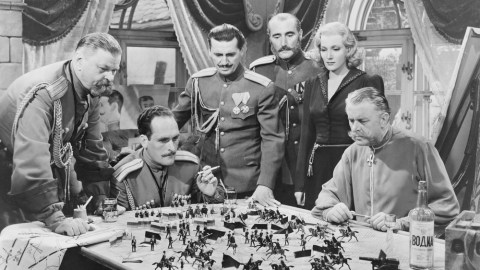Negotiation Favors the Prepared Mind

One of your greatest sources of power in a negotiation is preparation. Most of the time, people walk in to a negotiation — if it’s let’s say a salary negotiation very well prepared about their own thinking about the amount of raise they want. They give very little thought to what the other sides’ interests are. Why might this other side want to say yes or no to your proposal? And my recommendation: prepare. Before your next important negotiation, spend 30 minutes, 20 minutes in the car on your way to work and just thinking through what are my interests, why do I want that raise. Yeah, it’s money but why. Why do I want the money? And how urgent is it or is it the fact that I need more time with my family actually. What are your interests and probably more important what do you think the other sides’ interests are in this negotiation. Take a few minutes.
And in fact we sometimes actually have people do what we call a role reversal where we literally — if I were working with your I’d have you sit in another chair, an empty chair in this room and I’d say, “Okay, you now be your boss and I’m going to talk to you and I’m going to ask the boss, okay, why in the world would you want to give Dan any sort of raise in this negotiation?” Well actually I don’t think we do. Well, why not? What would persuade you? Well I think we want to motivate him more, maybe the money will help to motivate. Okay. So you want people who are motivated. Around what kinds of things? And we’re starting to dig for the deeper and deeper interests. What’s going on in the mind of this other party?
I can’t really influence you most effectively if I don’t know where your mind is at now. And with a little bit of homework I can start to get some hypothesize sense, some general sense of where your mind is at. So preparation is crucial and back to your question. Before I walk in to the negotiation I want to think through what are my interests, what might your interest be, and then after I’m actually in the negotiation I don’t want to just down and be locked in to my position, I want to be asking a lot of good open-ended questions. And that’s what I’d recommend to you, the viewer of this. Before you even walk in to the negotiation what are the three or four critical questions that you’d like to ask of that other person in the negotiation that will help you to get a better sense of what they really care about.
Are there certain internal obstacles that you’re allowed to share with me? Is it that you just don’t think I’ve been doing as good of a job as I should be doing? That’s helpful. I want to know so next year I can actually get that better raise. Help me understand, what are your interests.
In Their Own Words is recorded at Big Think’s studio.
Image courtesy of Shutterstock




